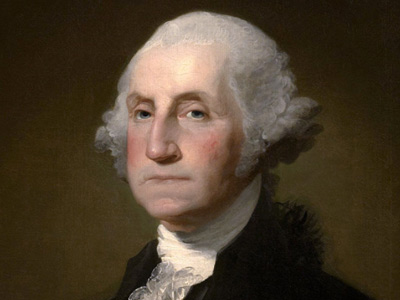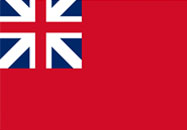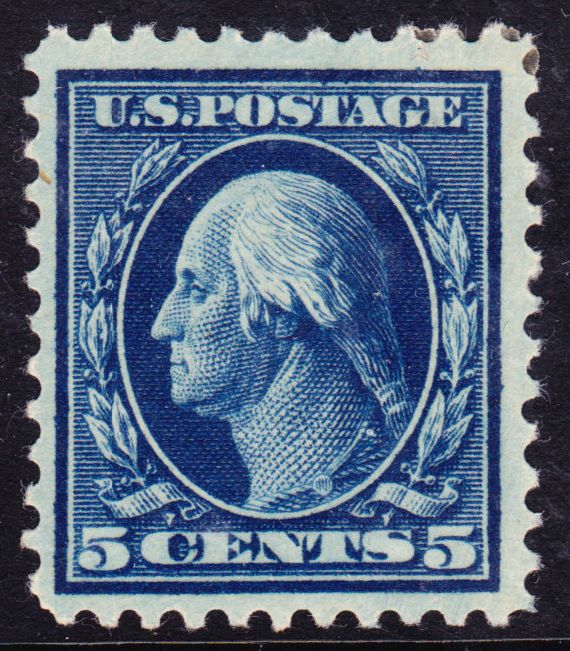George Washington (1732-1799)
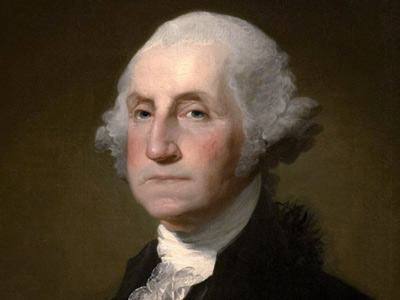
Constitutional Convention
Washington's retirement to personal business at Mount Vernon was short-lived. He made an exploratory trip to the western frontier in 1784 and inspected his land holdings in Western Pennsylvania that had been earned decades earlier for his service in the French and Indian War. There he confronted squatters, including David Reed and the Covenanters; they vacated, but only after losing a court decision heard in Washington, Pennsylvania in 1786. He also facilitated the creation of the Potomac Company, a public–private partnership that sought to link the Potomac River with the Ohio River, but technical and financial challenges rendered the company unprofitable.
After much reluctance, he was persuaded to attend the Constitutional Convention in Philadelphia during the summer of 1787 as a delegate from Virginia, where he was unanimously elected as president of the Convention. He held considerable criticism of the Articles of Confederation of the Thirteen Colonies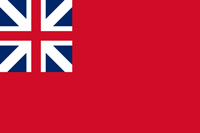 The Thirteen Colonies, also known as the Thirteen British Colonies, the Thirteen American Colonies, or later as the United Colonies, were a group of British colonies on the Atlantic coast of North America. Founded in the 17th and 18th centuries, they began fighting the American Revolutionary War in April 1775 and formed the United States of America by declaring full independence in July 1776., for the weak central government which it established, referring to the Articles as no more than "a rope of sand" to support the new nation. Washington's view for the need of a strong federal government grew out of the recent war, as well as the inability of the Continental Congress to rally the states to provide for the needs of the military, as was clearly demonstrated for him during the winter at Valley Forge. The general populace, however, did not share Washington's views of a strong federal government binding the states together, comparing such a prevailing entity to the British
The Thirteen Colonies, also known as the Thirteen British Colonies, the Thirteen American Colonies, or later as the United Colonies, were a group of British colonies on the Atlantic coast of North America. Founded in the 17th and 18th centuries, they began fighting the American Revolutionary War in April 1775 and formed the United States of America by declaring full independence in July 1776., for the weak central government which it established, referring to the Articles as no more than "a rope of sand" to support the new nation. Washington's view for the need of a strong federal government grew out of the recent war, as well as the inability of the Continental Congress to rally the states to provide for the needs of the military, as was clearly demonstrated for him during the winter at Valley Forge. The general populace, however, did not share Washington's views of a strong federal government binding the states together, comparing such a prevailing entity to the British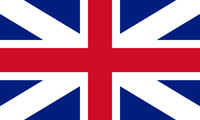 The Kingdom of Great Britain was a sovereign country in Western Europe from 1 May 1707 to the end of 31 December 1800. The state was created by the 1706 Treaty of Union and ratified by the Acts of Union 1707, which united the kingdoms of England (which included Wales) and Scotland to form a single kingdom encompassing the whole island of Great Britain and its outlying islands, with the exception of the Isle of Man and the Channel Islands. Parliament that previously ruled and taxed the colonies.
The Kingdom of Great Britain was a sovereign country in Western Europe from 1 May 1707 to the end of 31 December 1800. The state was created by the 1706 Treaty of Union and ratified by the Acts of Union 1707, which united the kingdoms of England (which included Wales) and Scotland to form a single kingdom encompassing the whole island of Great Britain and its outlying islands, with the exception of the Isle of Man and the Channel Islands. Parliament that previously ruled and taxed the colonies.
Washington's participation in the debates was minor, although he cast his vote when called upon; his prestige facilitated the collegiality and productivity of the delegates. After a couple of months into the task, Washington told Alexander Hamilton, "I almost despair of seeing a favorable issue to the proceedings of our convention and do therefore repent having had any agency in the business." Following the Convention, his support convinced many, but not all of his colleagues, to vote for ratification. He unsuccessfully lobbied anti-federalist Patrick Henry, saying that "the adoption of it under the present circumstances of the Union is in my opinion desirable;" he declared that the only alternative would be anarchy. Nevertheless, he did not consider it appropriate to cast his vote in favor of adoption for Virginia, since he was expected to be nominated president under it. The new Constitution was subsequently ratified by all thirteen states. The delegates to the convention designed the presidency with Washington in mind, allowing him to define the office by establishing precedent once elected. Washington thought that the achievements were monumental once they were finally completed.
HISTORY
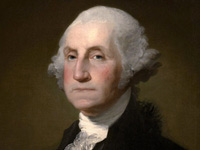
RESOURCES
This article uses material from the Wikipedia article "George Washington (1732-1799)", which is released under the Creative Commons Attribution-Share-Alike License 3.0.
© Stories Preschool. All Rights Reserved.
